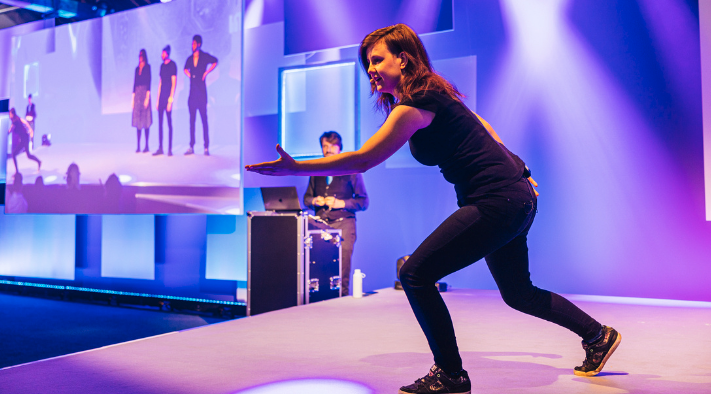On Monday, more than 500 data practitioners, leaders, and innovators gathered in (sunny! warm!) London for the first Everyday AI Conference of 2022 and the first in-person Dataiku conference since EGG 2019. In case you missed it, here’s my take on the top five best moments at Everyday AI London.
1. Seeing the Shift From Silos to AI at Scale
Aside from the palpable energy of gathering off screen and all of the fantastic talks, it was thrilling to see how far we’ve come in nearly three years and how the conversation around leveraging AI in the enterprise has evolved.
You heard it here first: The needle is undoubtedly moving toward Everyday AI. In 2019 when we asked conference attendees who is responsible for extracting insights from data at their organization, 48% said only data teams are responsible while only 14% said it’s the responsibility of data teams and lines of business.
More than 200 attendees at Everyday AI London answered this year’s survey, and 40% of respondents said that people in the lines of business, even if they don’t have “data” or “analyst” in their job title, are empowered — with adequate tools, training, etc. — to extract insights from data.
If you need more evidence, consider this: we found that organizations have made serious progress in providing training and education about the role of AI in their business — 37% of survey respondents said they have “Formal training and education (including certification programs).” Compare this to just 27% of survey respondents in 2019.
2. Improbotics (Enough Said)
We sat down with Piotr Mirowski, Ph.D., staff research scientist at DeepMind and Improbotics co-founder before Everyday AI London to get his take on the use of AI for artistic human and machine-based co-creation. But even then, I didn’t quite know what to expect.
Let me tell you, Piotr did not disappoint. If you’ve ever seen bot-generated content before, either it is so nonsensical it’s difficult to see how it can be funny, or it’s so laced with profanity that, well, it’s not easy to see how that would work.
What’s cool about Piotr and team’s work is that they have a full-time human curator — their version of human-in-the-loop AI — that keeps the show light, inspired, and hilarious.
3. Perspectives From Around Financial Services
A full third (33%) of respondents to our on-site survey were representing the financial services industry. So clearly topics around the evolution to Everyday AI and the roadblocks specifically for insurance and banking organizations was top of mind for many attendees. Yet even for those not in the financial services industry, there were plenty of takeaways.
The biggest one was that, at the end of the day, AI is still relatively new, and many systems and processes — especially within financial institutions, but within other verticals as well — were not developed with AI (much less Everyday AI) in mind. Therefore, it's key to stay agile, examine working processes, update them when needed, and look at new areas like deployment strategy and automation.
4. Dataiku 11 & The Ocean CleanUp
I know, I know, this one is a bit of a two-fer, but I couldn’t decide. It was a highlight for me to see the amazing work from my colleagues both on the product team and the Ikig.AI team come to fruition in both of these talks.
For The Ocean CleanUp, Yannick Pham, Lead Computational Modeler, showed how his team uses AI techniques for real, concrete impact on their mission. If you’re not familiar with their work, The Ocean Cleanup is a non-profit environmental engineering organization that develops technology to extract plastic pollution from the oceans. The talk was so popular and we had so many people asking to watch it again that you don’t have to read my boring summary, you can already see the recording for yourself on our Instagram.
On the other hand, we announced Dataiku 11 at the Everyday AI Conference London. What’s cool and exciting about this released is all the latest features for advanced technical profiles — just because we love Everyday AI doesn’t mean we can let experts fend for themselves, does it? New code studios in Dataiku embeds popular IDEs like JupyterLab, VSCode, RStudio, and webapp frameworks (including StreamLit) directly in Dataiku, so tech experts can work in the tools they know without the setup and management and efficiently contribute to Dataiku projects.
So that’s it! More follow-up coming soon, like complete results from the on-site survey and recordings of all the sessions that you can watch on demand.





